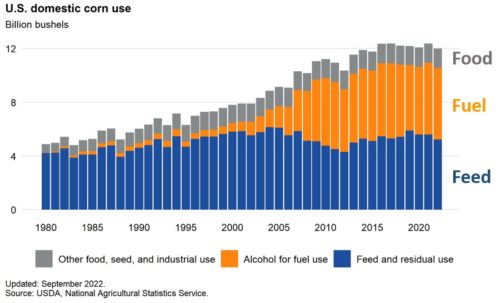Once again, a Farm Bill is in the works
Everyfive years or so, Congress gets to work on a new Farm Bill. This is a big job.
I’ve written about the Farm Bill previously. See, for example, my opinion piece in Politico: “The Farm Bill drove me insane.”
Here are two recent publications to get you started.
The Congressional Research Service has a handy guide with summaries of its full collection of primers for the a 2018 bill.
There are 23 primers summarized in this report and organized under descriptive headings rather than by farm bill titles to facilitate accessibility for those who are not familiar with the 2018 farm bill. The concept behind these primers is to provide relevant information on key programs and policy initiatives authorized by the 2018 farm bill in a concise format that serves as a quick-reference resource for Members of Congress and congressional staff. To this end, the primers describe many of the leading programs and policies within the 2018 farm bill. They also identify some of the higher-profile policy issues that may arise as Congress engages in the process of writing a new farm bill and highlight some policy options that Congress could consider as it undertakes this task. The titles of the primers are hyperlinked for easy access.
The National Sustainable Agriculture Coalition has a statement of principles for congressional reform of the bill.
US food and agriculture policies are in need of reform. Some of the country’s largest agricultural operations receive unlimited subsidies while beginning farmers struggle to afford land. Crop prices recently rose to record highs, but challenging input costs – for everything from fuel to fertilizer – are eating away at profits. Food supply and inflation challenges continue to make headlines. Meanwhile, children go to bed hungry while one-third of food is wasted.
Comment: Here’s one reason why:

Reforming the Farm Bill is badly needed but won’t be easy for reasons of history and politics. Getting it passed is expected to be exceptionally difficult for the same reasons. 80% or so of its spending is for SNAP—the Supplemental Nutrition Assistance Program (SNAP). The rest goes largely to producers of feed for animals and fuel for automobiles. How’s that for vested interests!
***********
For 30% off, go to www.ucpress.edu/9780520384156. Use code 21W2240 at checkout.


